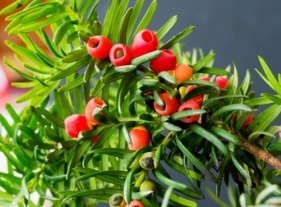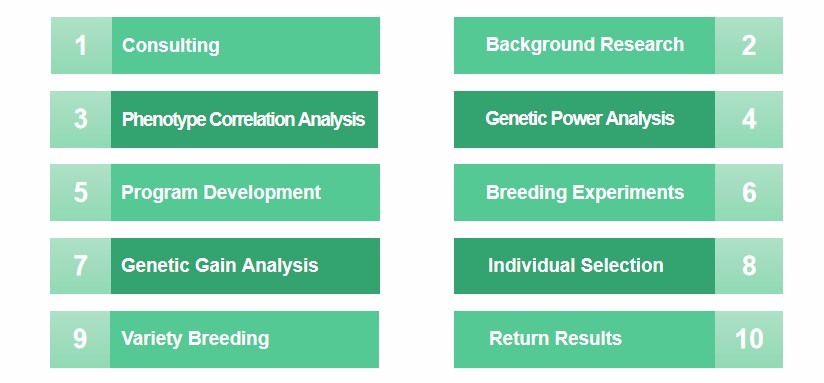
English yew (Taxus baccata L.) is an evergreen tree of the Taxus family and Taxus genus. It is distributed throughout Europe, northern Africa, and southwestern Asia. In the wild, it mainly grows on limestone substrates, like acidic soil and sunlight.
English yew wood has high hardness and beautiful wood texture, a high-quality material for making high-end furniture. English yew can extract a variety of alkaloids, diterpenes, lignans and tannins, and other compounds, especially paclitaxel, with different configurations that can be separated from roots, stems, leaves, bark, and seeds. Paclitaxel is a new plant-derived anticancer drug which can inhibit the mitosis of cancerous cells and has special effects on various cancers.
With its advanced plant breeding platform and unique rapid propagation technology system, Lifeasible helps breeders reveal the genetic variation of English yew and select varieties with fast growth, rich in paclitaxel, and excellent woodiness. The Taxus baccata L. breeding service we provide can meet the various needs of customers and increase the supply and demand of high-quality English yew.
After English yew was discovered to be able to extract paclitaxel for cancer treatment, it was cut down in large quantities for extraction to make anti-cancer drugs. However, English yew is mainly propagated by seeds and grows slowly. Lifeasible has a long history of research around English yew selection, and we can provide hybrid breeding, DNA molecular marker-based breeding, and transcriptomics-based breeding.
Our laboratory can quickly test the paclitaxel content of different strains of English yew, select fast-growing, paclitaxel-rich asexual lines, and complete interspecific crosses of English yew using the principle of hybrid advantage. In contrast, our large-scale nursery technology can quickly complete many selections.
DNA molecular marker technology is used to reveal swim maps that identify differences among individual English yew organisms and to analyze the genetic information that English yew may contain. We have developed a variety of molecular markers, including but not limited to RFLP fingerprinting, VNTR loci, RAPD fingerprinting, etc., which can rapidly resolve the genetic polymorphism of English yew and provide essential data for the selection of superior species.
The differential expression of various regulatory genes and enzymes in English yew samples under specific conditions was determined by transcriptomics to provide a more comprehensive understanding of the molecular mechanism of paclitaxel production at different levels in English yew, thus helping breeders to complete breeding in a targeted manner.

Lifeasible combines traditional and modern molecular techniques to reveal intraspecific genetic variation in English yew and to analyze the genes associated with paclitaxel content to select superior strains rich in paclitaxel. We are looking forward to cooperating with you. Please feel free to contact us for questions, inquiries, or collaboration.
References
Lifeasible has established a one-stop service platform for plants. In addition to obtaining customized solutions for plant genetic engineering, customers can also conduct follow-up analysis and research on plants through our analysis platform. The analytical services we provide include but are not limited to the following:
Get Latest Lifeasible News and Updates Directly to Your Inbox
Adaptive Evolutionary Mechanism of Plants
February 28, 2025
Unraveling Cotton Development: Insights from Multi-Omics Studies
February 27, 2025